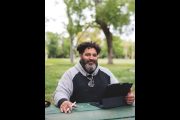
A massive tax increase passed in a special session (running concurrently with the regular session) of the Oklahoma House of Representatives has taken the highly-charged step of levying a tax on religion-based camps — including youth camps — in order to raise teachers’ pay. The bill, HB 1010, was passed 79-17 (The state’s constitution requires a three-fourths vote of each chamber of the Oklahoma Legislature to raise taxes without a vote of the people).
The bill will raise $447 million in revenue, which will fund an average $6,000 raise in teachers’ pay, plus increases in compensation for school support personnel and state employees. Included in the bill are increased taxes on cigarettes; a three-cent-per-gallon tax on the purchase of gasoline; a six-cent tax on diesel fuel; a five-percent tax rate on both existing and new oil and gas wells; and, for the first time in state history, a state tax on guests staying at a hotel or motel. (Local communities have levied such taxes for years.)
It is the $5-per-night tax on overnight stays at hotels and motels in Oklahoma that has raised the issue of the state imposing a tax on those lodging overnight at a religiously oriented camp.
Representative Kevin Wallace (R-Wellston) was asked about this provision in the legislation by Representative Travis Dunlap (R-Bartlesville). Dunlap noted that there are “spiritual retreats or religious retreats on privately-owned land, or privately donated land.” And, since participants in these retreats are often charged a fee covering lodging in cabins, or other such rooms at these camps, Dunlap told Wallace, “They are more or less visually hotels. They are set up like hotels architecturally. And because those entities charge when people come for spiritual retreats, they will be assessed this tax. Is that correct?”
Wallace conceded that such church camps, or other religious camps, are currently included in the tax bill, if they have three or more rooms. Since many camps include two-night stays on a weekend “retreat,” this would mean an additional $10 charge on such religiously oriented retreats, including youth camps.
Wallace promised Dunlap that although that is the current status of the bill, after the bill is passed, he would work to correct this situation.
Representative Kevin Calvey (D-Oklahoma City) followed up on Dunlap’s concern. “Even more specifically, this is going to tax Falls Creek, right?” Falls Creek is a Southern Baptist camp located near Davis, Oklahoma, in the southern part of the state. During the summers, it is the largest Christian youth camp in the world. And, since youth are there for about a week, the state tax would impose an additional cost for kids and their families. If, say, three children are at the camp for the week, the additional cost would be about $60 per family, on top of the actual cost of renting a room.
Wallace admitted “the language in the bill” would require that youth who stay overnight while receiving religious instruction would have to pay $5 per night in taxes to the state.
Calvey then followed up, asking if casino hotels in Oklahoma would have to pay the new tax. Calvey’s point is that because the casinos are owned by Indian tribes, the state cannot assess taxes on their casino hotels. However, Wallace promised Calvey that the tribal governments would be asked to collect the tax, too. But the casino hotels could refuse to pay the tax being assessed on other “hotels” in the state, including, apparently, church youth camps.
What is particularly amazing about this development is that the Republican Party holds 72 seats in the 101-member House of Representatives. A generation earlier, the Republicans held only about 20 seats. In the past 40 years, Republicans have steadily gained seats in the Oklahoma Legislature (the Senate Republicans hold a similar advantage), promising small government, low tax rates, and respect for religion. Every statewide office holder, including Governor Mary Fallin, who has been advocating for tax hikes for two years, is a Republican.
The reason that such a large vote margin was required to raise taxes was the passage of SQ 640 in 1992, which required either a vote of the people on any tax increase, or a 75 percent super-majority in both houses. Pay raises for teachers, who have announced a “walkout” on Monday of next week if they do not get a $10,000 increase in pay, was the principal reason given for the tax hikes. Even if the huge tax hike is passed by the Senate and signed by the governor, the Oklahoma Education Association announced, “April 2 is still on. Our ask is still our ask.… We’re still asking for a complete package.”
The bill is expected to pass the Senate, and Governor Fallin is expected to sign it into law. Whether the provision that will impose a state tax on those who spend the night at a religious camp will be “fixed” as promised is uncertain.



